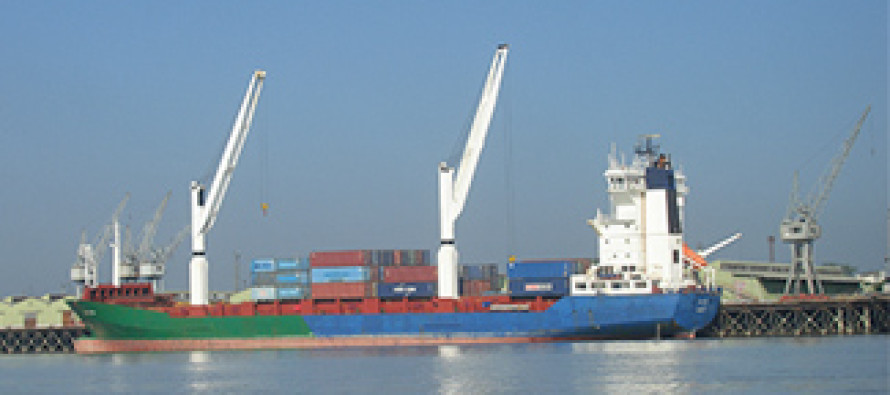Bangladesh exports to Australia accelerating

Bangladesh exports to Australia in recent years have been impressive. The total value of exports in Australian currency increased from $119 million in 2008-09 to $305 million in 2011-12 – an increase of 156 per cent in three years. The pace of increased exports started accelerating from 2009-10 suggesting that exporters in Bangladesh were beginning to diversify their export destinations wherever opportunities exist.
Beginning in 2003, Australia provides duty free and quota free access to its national market. Many developing countries are taking advantage of these trade facilities with a view to increasing their exports and earning foreign exchange that help pay for country’s imports. While the value of Australian exports to Bangladesh is still greater than that of Bangladesh exports to Australia, the trade gap has started narrowing in recent times. This can be attributed to the remarkable increase in garments exports from Bangladesh.
In 2011-12, Australia’s garments imports from Bangladesh stood at $288 million out of a total imports of $305 million. Other major imports from Bangladesh were bed, table, toilet & kitchen linen, woven fabrics of jute or of other fibres, and floor coverings. Major Australian exports to Bangladesh in 2011-12 comprised fertilisers, cotton, vegetables, and wheat, with total Australian exports estimated to be $542 million. This boils down to a total bilateral merchandise trade of $847 million, almost double of what was in 2008-09.
At this point in time, Australia is a very small export market for Bangladesh, accounting for only 1.2 per cent of total Bangladesh exports. The United States, Germany and the United Kingdom are the major export destinations of Bangladesh.
International trade has become very competitive. A variety of factors affect the competitiveness of exports and imports. It is pertinent to note that countries or governments do not compete in international trade in a free market environment. Companies compete in the global market. Two key driving factors of trade competiveness are costs and quality of products. Being a low- wage country, Bangladeshi companies enjoy cost competitiveness and generally garments manufacturers seize this cost advantage to successfully compete in international export markets, including Australia.
China, India and some other countries which used to be known as low-wage countries have lost their cost competiveness to some extent as their average national wages have risen over the years. Moreover, some of these countries have chosen the path of developing and exporting high-value products as part of their industry development and economic growth goals. These countries are also pursuing a social objective of lifting the standard of living of people, including the factory workers.
Cost competitiveness based on low wage may not last for long. In addition, low wage keeps workers poor, raising a barrier to higher standard of living and worsening rich-poor income and social gaps. Sustainable business competitiveness based on innovation and increased productivity is critical to continued economic growth and jobs creation, with the possibility of ensuring higher wages for workers and improved living standards. A major challenge is to develop improved, new and innovative products and create value in the supply chain. This will not happen overnight; however, both the Bangladesh government and the private sector entrepreneurs and manufacturers should take a long-term view of where the economy will be heading into the future.
Bangladeshi exporters, garments and textiles exporters in particular, should continue to exploit prevailing opportunities to export low-value products to Australia and other international markets. However, it will help their long-term growth and survival if they start devising strategies and credible actions for the development and export of high-value products. Increased market share in existing markets and penetration into new exports markets can contribute to achieving sustainable economic growth with a social goal.
Bangladesh has untapped potential for further development of some others industry sectors. These include shipbuilding, and information and communication technology (ICT). Bangladeshi companies can explore if they have opportunities for exporting shipbuilding and ICT products to Australia. Australia could be a trade destination in these areas if niche product development and appropriate promotional and marketing strategies are undertaken by the Bangladeshi companies to be supported by the government and its concerned agencies.
Never, ever get discouraged. If we keep digging, one day we will get gold!
Abdul Quader is a policy adviser and writes from Canberra


